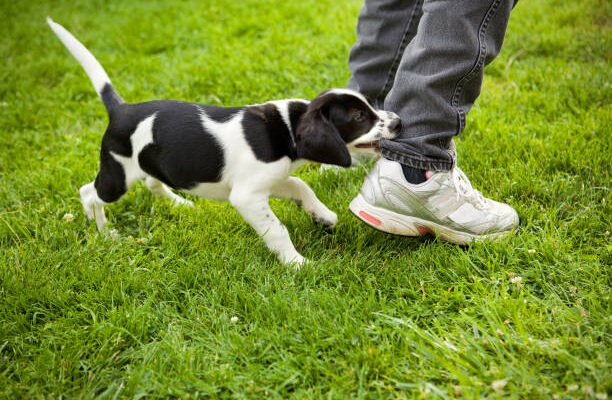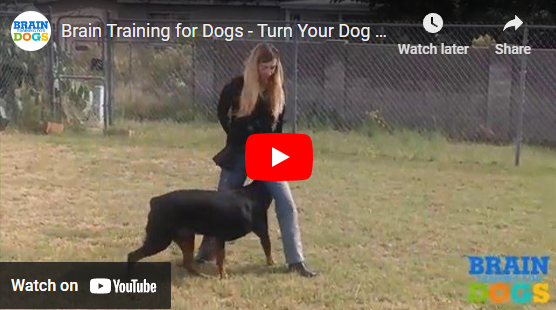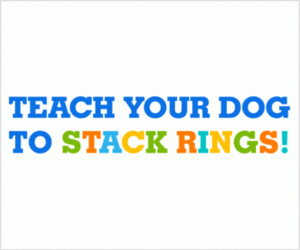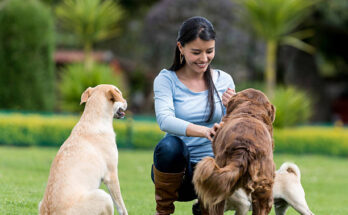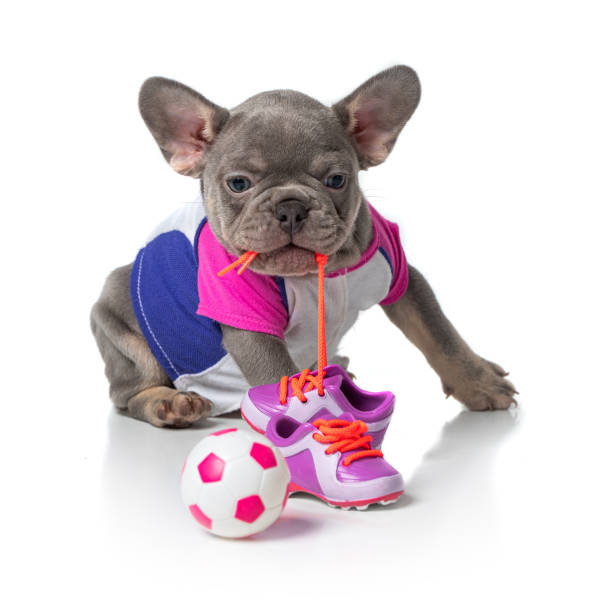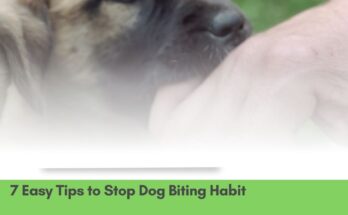Bringing home a new puppy is an exciting and joyful experience.
I’ve had the pleasure of raising dogs for over 15 years, and every new puppy brings its own challenges and rewards. One common issue that all new dog owners face is puppy biting.
While it might seem cute at first, this behavior can quickly become a problem if not addressed early on.
In this guide, I’ll share some practical techniques on how to train your puppy not to bite, based on my experience, and introduce you to a fantastic resource that can take your puppy training to the next level.
Why Do Puppies Bite?
First, let’s understand why puppies bite. Puppies naturally explore the world with their mouths, and biting is a part of their play behavior.
Teething can also cause discomfort, leading them to bite or chew on things (including your hands).
While this behavior is normal, it’s important to teach your puppy that biting humans is not acceptable. If left unchecked, it can turn into a bigger issue as they grow older.
Turn Your Dog into a Genius – watch Video
How to Stop Puppy Biting – Basic Techniques
1. Redirect with Toys
One of the easiest ways to stop puppy biting is to redirect their attention to appropriate chew toys.
Whenever your puppy starts nipping at your hands or clothing, calmly replace your hand with a toy. This teaches them that biting toys is fine, but biting people is not.
My Labrador Retriever, Max, loved his rope toys during his teething phase, and it worked wonders for curbing his biting behavior.
2. Use Positive Reinforcement
Positive reinforcement is key when training any dog, and this applies to stopping biting too.
Reward your puppy with treats or praise when they engage in desirable behavior. Avoid punishing them for biting, as it can lead to fear and aggression.
Instead, focus on encouraging good habits.
If you’re new to positive reinforcement, I highly recommend checking out the Brain Training for Dogs program.
It’s packed with expert advice on how to use positive reinforcement effectively to manage all kinds of dog behavior, including biting.
This program has been a game-changer for me, and I’m sure it will be for you too!
3. Teach Bite Inhibition
Another important technique is teaching bite inhibition, which helps your puppy learn to control the force of their bites.
If your puppy bites too hard during play, let out a sharp “ouch” and stop playing for a few seconds.
This signals to your puppy that rough play ends the fun. Over time, they’ll learn to be more gentle.
Handling Puppy Biting in Common Scenarios
1. Biting During Playtime
Puppies often get over excited during play, leading to biting. In these moments, it’s essential to stay calm and consistent.
If your puppy starts biting, immediately stop playing and offer a toy instead. You can also teach impulse control by practicing simple commands like “sit” or “stay” before resuming play.
The Brain Training for Dogs program has excellent exercises that help with impulse control, making playtime more enjoyable for both you and your puppy.
Turn Your Dog into a Genius – watch Video
2. Biting Around Family and Guests
Socializing your puppy is crucial to preventing biting around family and guests. Introduce your puppy to different people, environments, and situations in a controlled manner.
This will help them become more confident and less likely to resort to biting when they feel unsure or excited.
If you need more structured training, consider using the Brain Training for Dogs program.
It offers step-by-step guidance on how to properly socialize your puppy, ensuring they grow up to be a well-behaved member of the family.
Long-Term Strategies for a Well-Behaved Dog
Training your puppy not to bite is just the beginning. Consistent training is essential as your puppy grows into adulthood.
Beyond just stopping biting, you’ll want to focus on developing a well-rounded, obedient dog.
This is where a comprehensive program like Brain Training for Dogs truly shines.
It’s designed to help dog owners at every stage, from puppies to adult dogs, covering everything from basic commands to advanced problem-solving skills.
Why I Recommend ‘Brain Training for Dogs’
As someone who has been a dog owner for 15 years, I’ve tried various training methods.
The Brain Training for Dogs program stands out because it’s based on science-backed methods that focus on positive reinforcement.
It’s not just about stopping problem behaviors but also about enhancing your dog’s mental development and strengthening the bond between you and your dog.
The program includes detailed videos, tutorials, and exercises that are easy to follow. Whether you’re dealing with puppy biting or more complex behavior issues, this program has got you covered.
FAQs About Training Your Puppy Not To Bike
Q1: At what age should I start training my puppy not to bite?
Answer: You should start training your puppy not to bite as soon as you bring them home.
Puppies are most receptive to learning between 8 and 12 weeks of age, so this is the ideal time to begin teaching them proper behavior.
Early training sets the foundation for a well-behaved dog in the future.
Q2: How long does it take to train a puppy not to bite?
Answer: The time it takes to train your puppy not to bite varies depending on the puppy’s temperament, consistency in training, and the techniques used.
With consistent effort, you should see progress within a few weeks.
However, ongoing reinforcement may be needed as your puppy continues to grow and learn.
Q3: What should I do if my puppy doesn’t stop biting, even with training?
Answer: If your puppy continues biting despite your efforts, it might be helpful to try new strategies or seek additional resources.
The Brain Training for Dogs program offers expert techniques that can help with persistent biting and other challenging behaviors.
If the problem persists, consulting a professional dog trainer or veterinarian might be necessary.
Q4: Can I use punishment to stop my puppy from biting?
Answer: Punishing your puppy for biting is not recommended, as it can lead to fear and aggression.
Instead, focus on positive reinforcement by rewarding good behavior and redirecting inappropriate biting.
Programs like Brain Training for Dogs emphasize humane training methods that build trust between you and your puppy.
Q5: Is it normal for puppies to bite during teething?
Answer: Yes, it’s completely normal for puppies to bite and chew during the teething phase, which typically occurs between 3 to 6 months of age.
During this time, they experience discomfort as their adult teeth come in.
Providing appropriate chew toys and redirecting their biting can help manage this behavior.
Q6: How do I teach my puppy not to bite children?
Answer: When training your puppy not to bite children, supervision is key.
Teach your children how to interact calmly with the puppy and avoid rough play that might encourage biting.
Reinforce gentle behavior with praise and treats. Socializing your puppy with children early on, in a controlled environment, can also help.
For additional help, consider the structured lessons offered in Brain Training for Dogs to improve your puppy’s behavior around kids.
Turn Your Dog into a Genius – watch Video
Final Thoughts
Training your puppy not to bite requires patience, consistency, and the right approach. With these techniques and a little help from the Brain Training for Dogs program, you can effectively stop your puppy’s biting and set them on the path to becoming a well-behaved and happy dog.
Remember, every dog is different, so stay patient and keep practicing. The reward of a well-trained, loving companion is worth the effort!

